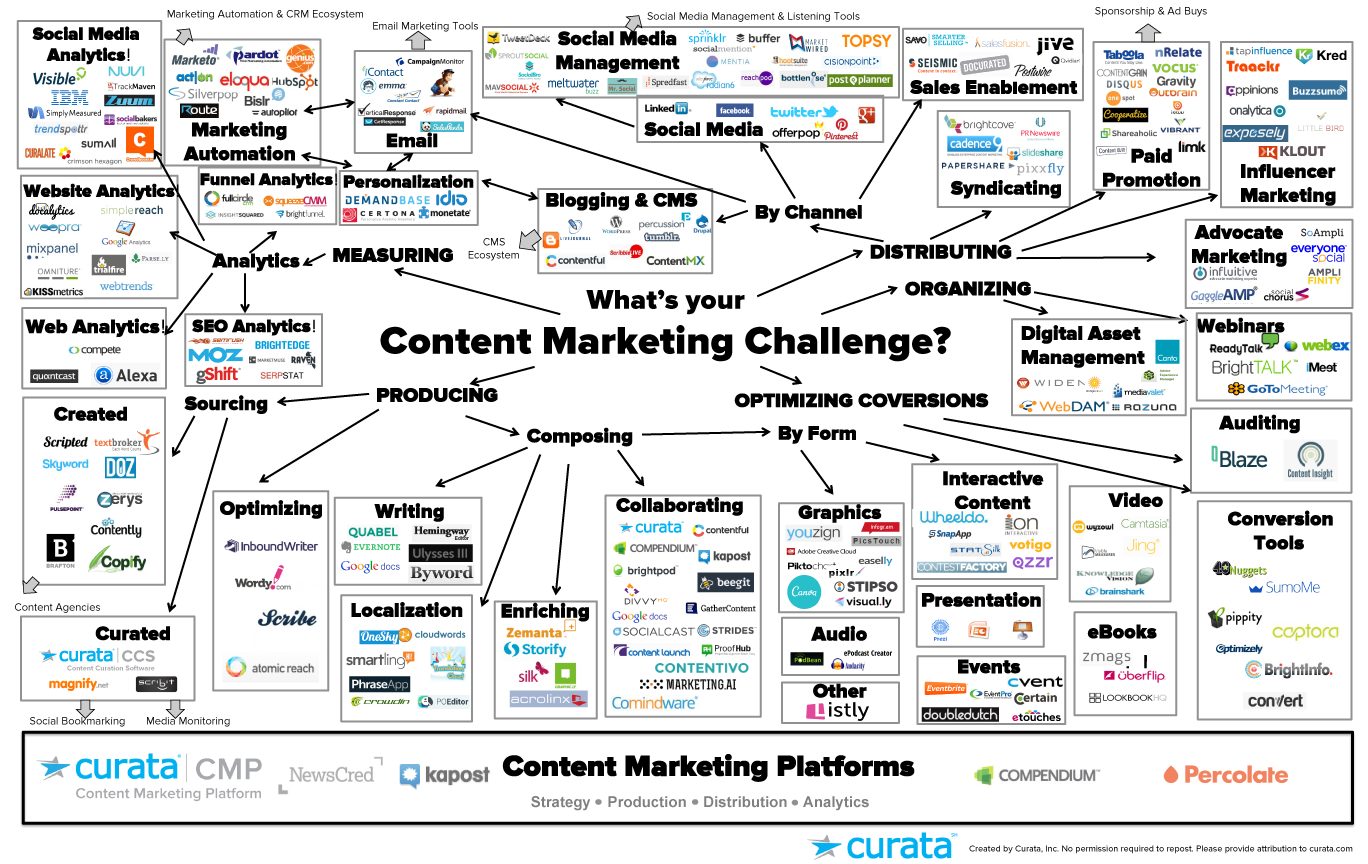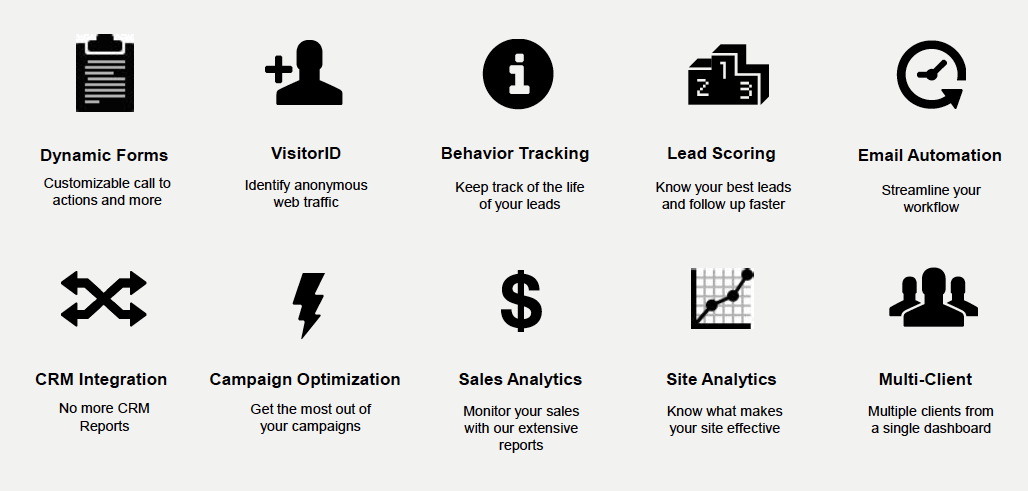A brutal economic downturn, the dawn of social media and proliferation of software providers became the catalyst for the transformation of marketing in today’s post-advertising age.
In the new world order of owned, earned and old-school paid media, the result is Content Marketing is today’s preferred method to generate leads, nurture opportunities and enhance a brand’s visibility online. It’s also no longer unique or new.
Content Marketing and the new normal.
There are plenty of compelling statistics all over the web that documents how Content Marketing has been adopted by virtually every organization that’s serious about online marketing. The Content Marketing Institute, in fact, claims that over 80% of small businesses are engaged in some form of it. In larger enterprise-class organizations, it’s well over 90%.
As a result, the black box mystery of Content Marketing has been opened up and marketers and brands now clearly see what components and methods are required for success.

Where did my secret sauce go?
So now that everyone has a website, inbound marketing software, a content strategy and internal or external resources to implement and deploy a consistent content marketing program, how do organizations or brands differentiate themselves from one another with Content Marketing?
I asked this question to the VP of Sales at a well-known inbound software provider a few years ago as I looked ahead to the current state of affairs. His response was “Oh, that won’t be an issue.”
He couldn’t have been more unconvincing—or painfully short-sighted.
Today, it’s not about the software, the technology or whether you insource or outsource your content creation. How you separate and differentiate your brand or organization from your competitors comes down to who is defining, guiding and implementing this now essential business requirement.
For organization leaders, this should come as no surprise. Without seasoned, experienced, and uniquely talented resources continually working on the never-ending task of defining, refining, and implementing a good content marketing strategy along with a consistent content creation and distribution plan, long-term success becomes questionable.
An interconnected puzzle of moving parts.
Let’s recognize that Inbound or Content Marketing is not for the novice. Or for the social media expert who claims to deliver “tons of followers”—and not much else.

Connecting all of the disparate dots of brand story and message, a responsive website, content management systems, CRM, lead scoring, SEO, lead nurturing, multimedia content development, and distribution that consistently extends content reach is anything but a walk in the park. And when you consider the analytics, communication, management, and never-ending training of all parties involved in this endeavor, the challenge increases exponentially.
Pick your partner wisely.
Software provider HubSpot discloses that implementing Content Marketing can be a somewhat daunting puzzle. Consider also that it’s not a static solution or discipline. That’s because every part of it is changing every day.
So who should you turn to to help guide your organization to achieve its strategic and business goals? And how will ensure that the continual content creation efforts required for online success today will be effective, efficient, and engaging to deliver the results you’re looking for?
Rather than trying to corral a herd of vertical providers with their own agendas or siloed perspectives, turning to someone with a proven track record of integrating each of these disciplines to achieve the content marketing outcome you seek might be a better path to consider.
What to look for from your Content Marketing partner or agency
- | Measurable metrics + case studies of how content marketing has helped a brand reach their strategic goals
- | Story + messaging expertise to turn confusing into compelling + engaging content
- | Digital expertise to get content developed, optimized, deployed + measured
- | Integration of proven platforms that simplify process + mitigate obsolescence risk
- | Successful track record that demonstrates how to align an organization’s value + personality with their content
- | Competitive pricing that reflects that value they will deliver
No return ticket.
The train left a long time ago and there’s no turning back. And Content Marketing isn’t going away.
What will separate winners from also-rans is the talent and experience of those engaged in the effort. The unique abilities, ideas, interactions, and passion that these resources have will become the differentiator for brands. And it will most assuredly be reflected in the quality of what they create, distribute and measure.
Content Marketing success most certainly won’t be determined by which flavor of inbound software, CMS or CRM that you choose or use.
And where are you?
Are you having success with Content Marketing? Or are you trying to crack the code on how to bring all of the disparate pieces of the Content Marketing puzzle together to get to that place called success? Time to share.
As president and creative director of TeamworksCom, Paul develops brand strategy, engineers content to express customer value and creates integrated online and content marketing solutions to help businesses succeed. Connect with Paul, send an Email, or just call 415.789.5830.

1) content marketing platform: A content marketing platform is a robust all-in-one suite that encompasses multiple functions into a single piece of software.
2) what is content marketing software: content marketing software is an advanced single-purpose app that helps marketers achieve a specific aspect of content marketing.
3) what are content marketing tools: content marketing tools are simple free or low-cost single functions apps.
4) Recommending reading for content marketers: we’ve covered tons of different software and tools you can use. But in order to put them all to use, it helps to have the knowledge necessary to do the work.
great job